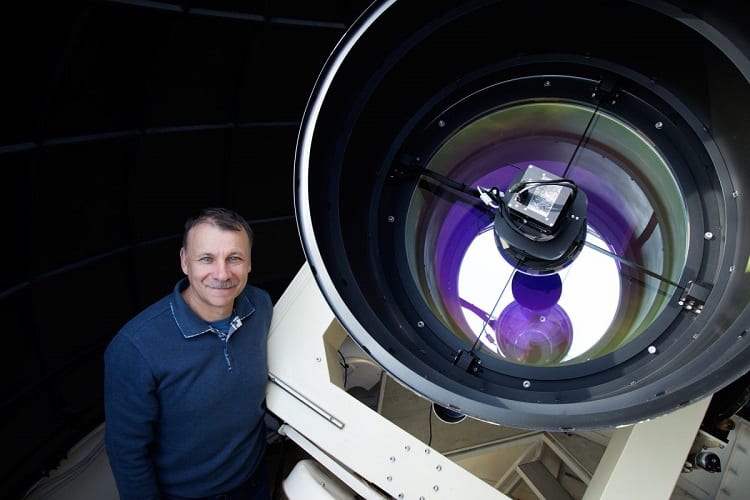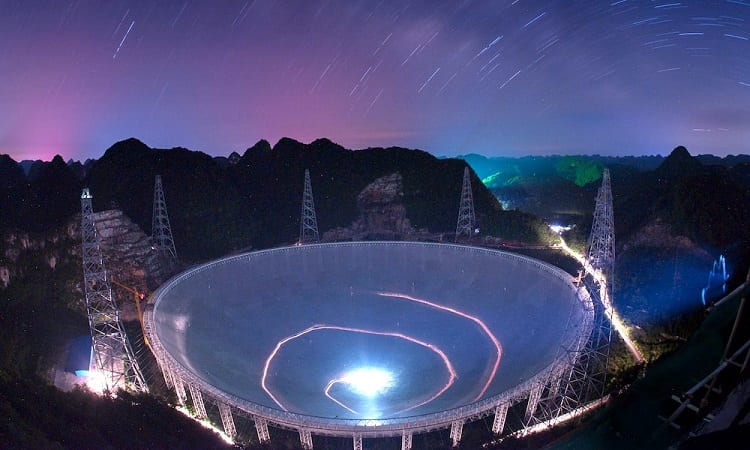When you think about an astronomer, chances are you picture someone sitting behind a giant telescope, spending their time alone.
If you love astronomy, you might be interested in pursuing a career in the field, but there are some important things to know about what a job would be like. For starters, you need to be ready to hit the books as you’ll need to be highly qualified!
Do you need a PhD in order to pursue astronomy?
While a PhD will ensure that you can become an astronomer, there are other educational requirements you need to know about to be able to work in the field of astronomy.
With that in mind, here’s everything you need to know about having a career in astronomy. We’ll start by looking at the qualifications you’ll need to have under your belt then move on to what you need to know about finding a job as an astronomer.
Contents
What High School And University Requirements Do You Need?

In high school, you’ll have to have completed courses such as computer sciences, math, and physics. It’s also good to have chemistry as well as other sciences in your high school education.
In university, you’ll need to pursue a degree in physics, astrophysics, or astronomy. These degrees feature physics, but astrophysics offers a more integrated study of physics and astronomy.
You’ll have to study both quantum and classical mechanics, as well as electromagnetism and thermodynamics, to mention just a few.
Common degrees you will have to study include:
Bachelor’s Degree in Science
You’ll make your focus either physics or astronomy.
This four-year degree will prepare you for what a career in astronomy will be like and teach you important skills you’ll need in the field. You might also be able to complete a degree with a specialization in astrophysics.
Master’s Degree
Once you’ve completed your Bachelor’s degree you’ll have to proceed on to your Master’s. This is usually a degree in science, and it can take around two years to complete.
It offers specialized classes on subjects such as math, astronomy, and physics. Doing your own research will also be a big part of it. You’ll have to complete a thesis that features the idea or topic that you want to explore.
PhD Degree?
Most astronomers have a PhD in physics, astrophysics, or astronomy. This degree fine-tunes your focus in the area of astronomy that you’re interested in, such as galactic or solar astronomy. This degree can last for between four and five years.
During your Ph.D. you will also have research fellowships and internships that you could complete, which will help you start gaining more experience in the astronomy field.
Your Ph.D. will also include the writing of a dissertation proposal. This is a deeper study of your preferred topic in astronomy and it will be required of you, as well as qualifying exams, which usually include both verbal tests and oral presentations, in order to graduate.
How To Get Into The Astronomy Field

If you want to start working in a career in astronomy, once you’ve finished your studies you’ll probably have to take temporary work or postdoctoral positions.
These are valuable because they help you to do research as well as increase your experience. You could find work in a variety of places, such as labs, universities, or government agencies.
It’s obviously a good thing to be working on what your focus is – this is a topic that you’ve worked your research around during your studies and it should develop as you move through your years of education.
Once you’ve completed your Ph.D., you will be in a position to qualify for various research positions at universities so that you can increase your level of experience and continue working on your focus in astronomy. This is especially beneficial if you are hoping for a career in academia.
What Can You Do With An Astronomy Degree?
It’s good to know what career options you have at your disposal once you’ve completed an astronomy degree.
It’s easy to have the misconception that a degree in astronomy limits you when it comes to your career opportunities, but this certainly isn’t the case.
There’s a wide range of careers that will open up to you when you complete your astronomy studies. You could work as a planetary geologist, cosmologist, astrobiologist, telescope design engineer, and more.
Many institutions and organizations will be interested in hiring people with astronomy degrees.
There’s also the need for public engagement specialists. In such a role, you would need to share your knowledge of astronomy as well as produce programs for children and the public.
It’s interesting to note that over half of astronomers in the field will be faculty members at colleges or universities, or linked to these institutions through laboratories or observatories, as the American Astronomical Society reports.
For astronomers in these jobs, they will teach as their main job. They will also be spending a substantial amount of their time working on their research.
Common Tasks You’ll Have In Astronomy Work

While your tasks will naturally vary depending on the career you embark on, your job as an astronomer will usually include the following responsibilities:
- You’ll have to collect as well as analyze data, whether these have been gathered from satellites or cameras. This is especially the case for observational astronomers who will spend up to 30 nights a year working at an observatory or collecting observations from spacecraft, as the American Astronomical Society reports. The rest of their time will be dedicated to analyzing this data.
- You’ll have to plan as well as execute research projects. These will try to answer important questions about the universe, such as how galaxies are created.
- You’ll have to ensure you read up on academic literature that has already been published.
- You’ll have to write scientific articles, so proficiency in the written word is a must.
- You’ll have to apply for grants so that you can find funding for your research work.
- You’ll have to team up with other astronomers, and these are usually professionals from around the world.
- You’ll have to be able to present your work, such as at conferences.
- You’ll have to train and mentor postdoctoral researchers and/or students.
Other Things To Know About Astronomy Jobs
- Working in the field of astronomy will require you to have a strong understanding of statistics, mathematics, and physics. Knowledge in geology or chemistry can also be beneficial to your career prospects.
- You’ll be working on the computer a lot, especially when it comes to your research, so you’ll have to ensure you can complete data analysis and have up-to-date programming skills.
- You’ll have to be able to travel a lot internationally. This is because you’ll need to collaborate with other professionals in the field and share your research with them.
- You need to be a strong communicator. While it’s easy to assume that a career in astronomy will be one of isolation, this is certainly not the case. You should be able to write and speak in such a way that you can express your ideas and research, as well as justify motivations you have for your research. This will increase your chances of receiving funding for your work. Having excellent communication skills will also ensure that you can interact with the public effectively.
Related Questions
What are the usual working hours of an astronomer?
You can expect to work longer hours than what you’d find in a regular work week, and you’ll have to be okay with working irregular hours. This is especially the case when it comes to meeting deadlines for publications or funding grants.
How much money do astronomers make?
While salaries will obviously vary depending on one’s job title and place of work, as well as one’s education level, astronomers make an average of between $112,335 and $131,715 per year, as Salary reports.
Conclusion
A career in astronomy is exciting, but you might not really think about what it actually means and what types of jobs will open up for you once you have completed your educational requirements.
It’s clear to see from reading this article that astronomers do a lot more than watch the stars.
We’ve provided you with everything you need to know about astronomy jobs and how you can ensure a successful career for yourself, such as when it comes to what you can expect from the work you’ll do.


